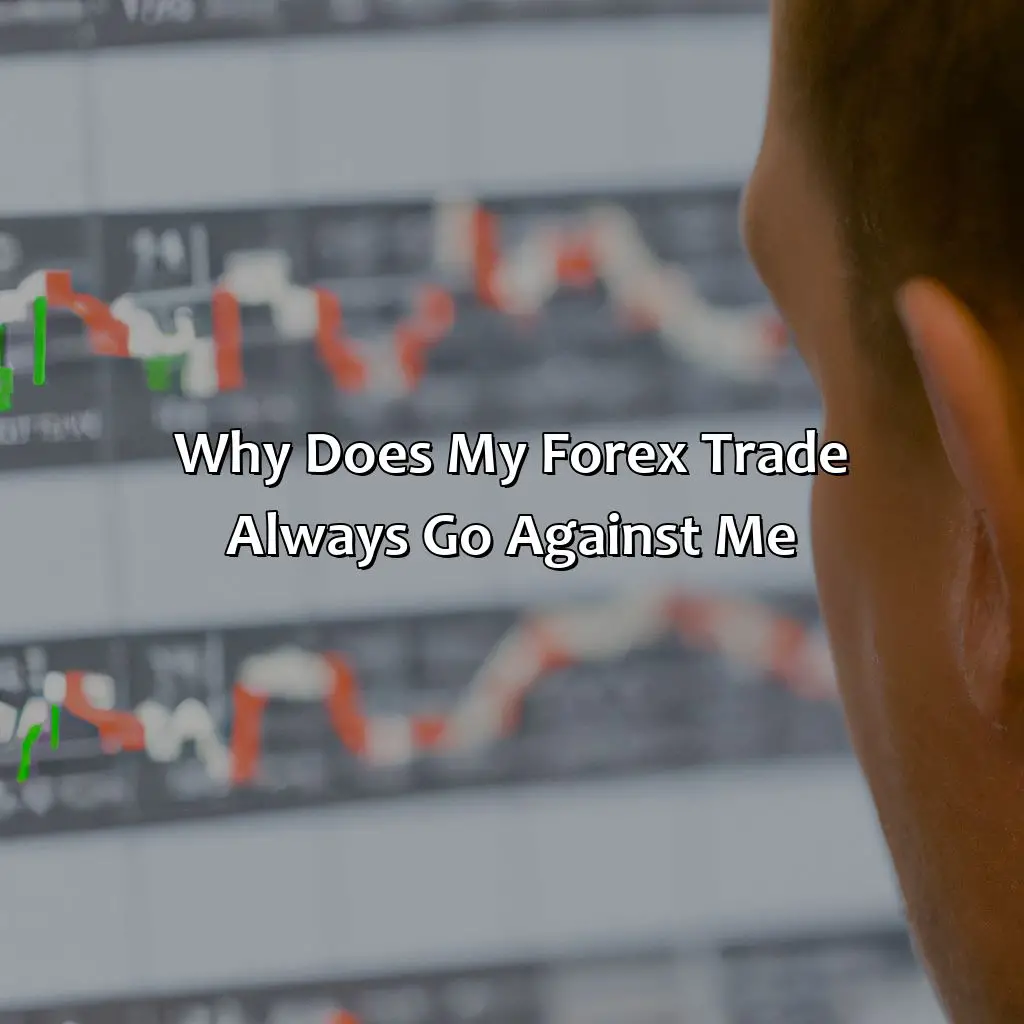
Key Takeaway:
- Forex trades may go against the trader due to inadequate risk management, inappropriate stop loss and profit target levels, and high bid-ask spreads or slippage. It is important to carefully consider these factors before making a trade to avoid unnecessary financial losses.
- To effectively trade Forex, it is crucial to have a deep understanding of the market, including trading strategies, technical and fundamental analysis, market psychology, and leverage. Inadequate research and analysis, and inappropriate approaches and strategies may result in unsuccessful trades.
- The psychology of trading plays a significant role in Forex trading, and emotional barriers such as fear, greed, and overconfidence may affect decision-making processes. It is essential to maintain emotional balance and seek professional support and guidance to overcome these challenges.
- External factors such as economic and political developments, market volatility and liquidity, and trading style may influence Forex trades. It is important to remain aware of these factors and adjust trading strategies accordingly to minimize financial losses.
- To overcome Forex trades going against the trader, continuous learning and improvement, disciplined trading and risk management, and seeking professional support and guidance are recommended. This includes maintaining a Forex trading journal, having a trading plan, seeking mentorship, and being committed to discipline, patience, and mental focus.
Common Reasons for Forex Trades Going Against the Trader
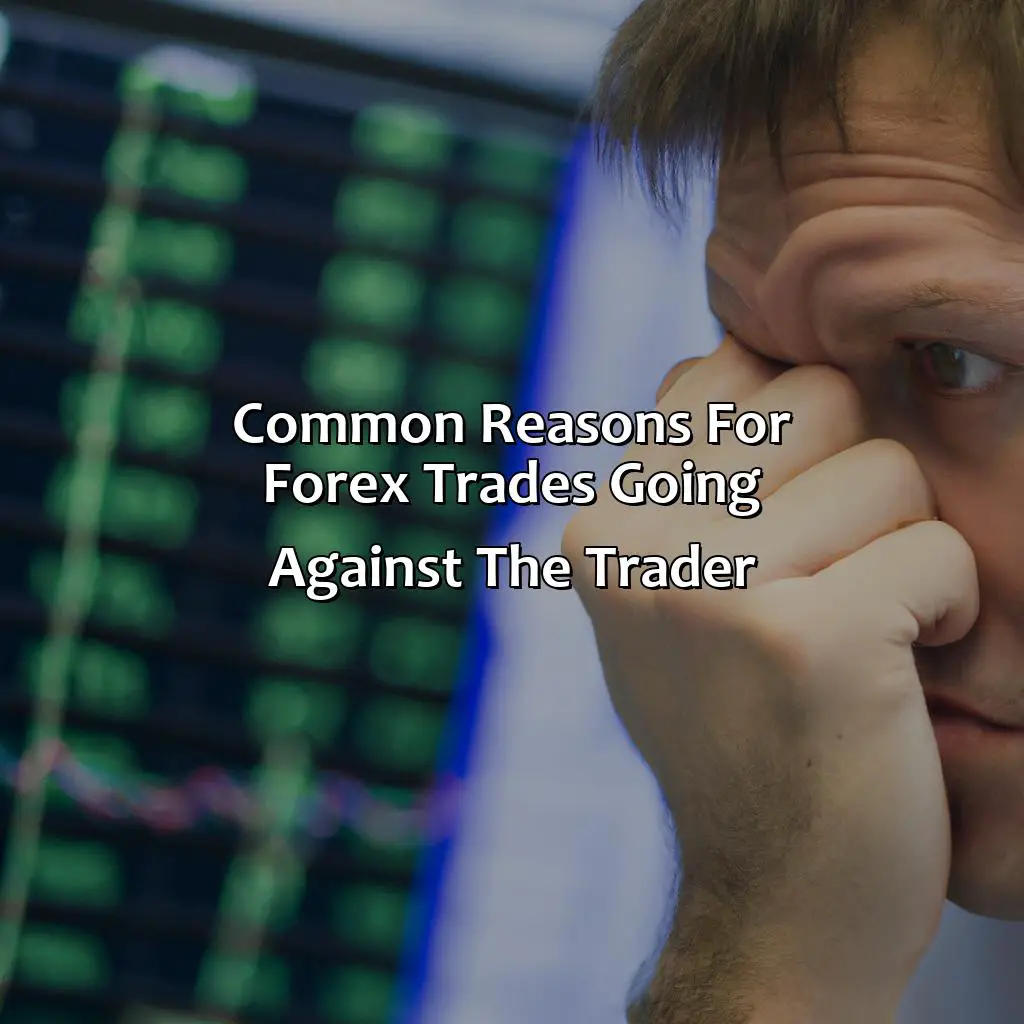
Photo Credits: forexbrokerreport.com by Peter Nguyen
Forex trading can often lead to financial losses if proper risk management is not employed. Traders experience often trades going against them, resulting in losses. This could be due to several reasons such as bid-ask spreads, slippage, margin trading, and more. It is vital to have a clear stop loss and profit target while trading to avoid significant financial losses.
One of the significant reasons for forex trades going against traders is the bid-ask spread, which denotes the difference between the buy and sell price of a currency pair. It affects the profitability of the trade significantly since traders have to pay a higher price when buying and receive a lower price when selling.
Another reason is slippage, which occurs when there is a significant gap between the expected price and the actual execution price of the trade. Traders often don’t get the expected price, which results in losses.
Margin trading is another factor that leads to trades going against the trader. A trader borrows money from the broker to trade, and if the trade goes against the trader, the losses are magnified, leading to significant financial damage.
On a trading platform, the execution of the trade is essential. Delayed execution could result in trades going against the trader. Hence, choosing a reliable trading platform is crucial.
Lack of Understanding and Knowledge in Trading Forex
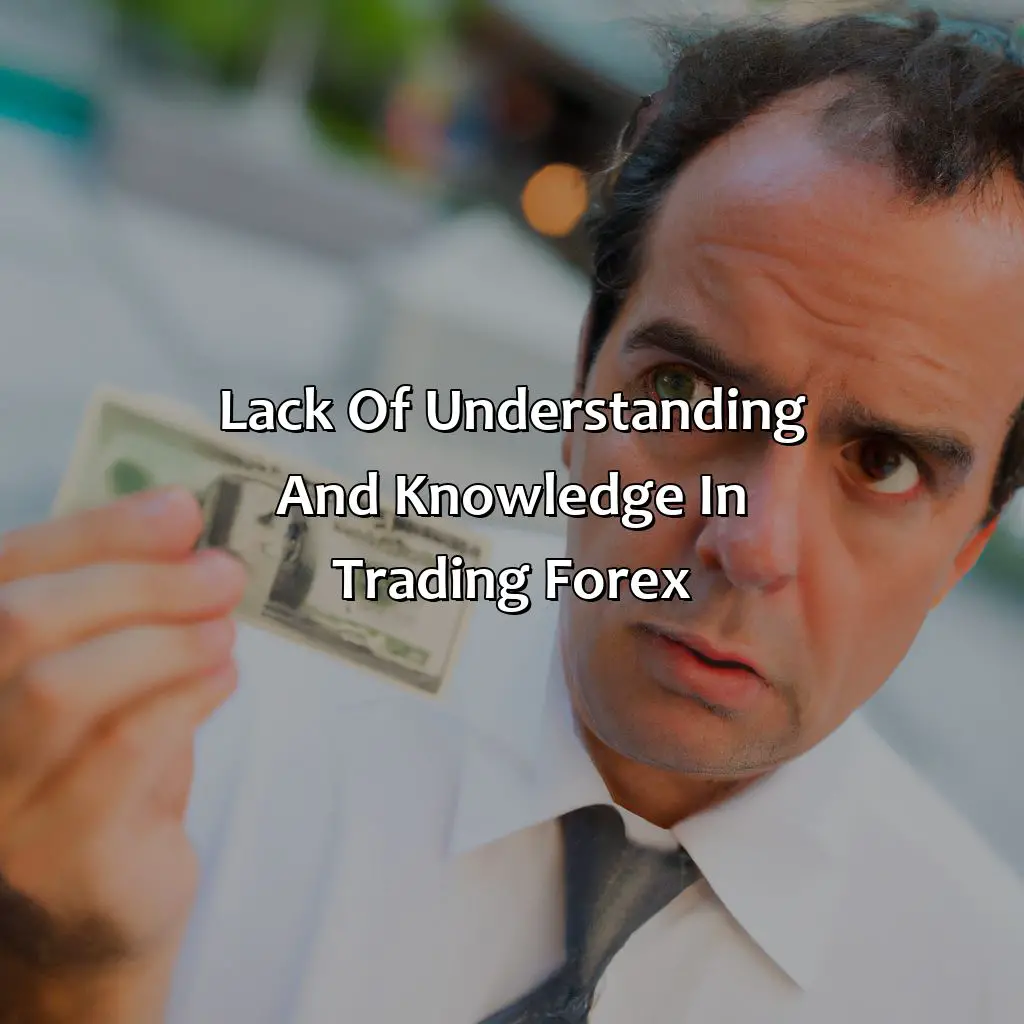
Photo Credits: forexbrokerreport.com by Billy Hill
To boost your trading in forex, you need to understand different areas. These include:
- Currency exchange
- Trading strategies
- Market trends
- Technical and fundamental analysis
- Market psychology
- Trading plan
- Leverage
- Economic indicators
- Chart patterns
- Candlestick analysis
- Oscillators
- Moving averages
- Fibonacci retracements
- Breakout trading
- Trend following
- Position sizing
Research and Analysis (market analysis, support and resistance, trend lines, channels, triangles, rectangles, head and shoulders, double tops, double bottoms, wedges, flags, pennants, gaps, divergence, convergence, trading setups) and Strategies (risk-reward ratio, trading signals, strategy optimization, trading education) are vital topics that you must consider.
Inadequate Research and Analysis
Individuals who underestimate the significance of conducting proper market analysis can lead to inadequate research and analysis, which ultimately creates an unfavorable outcome in forex trades. Understanding the technicalities of support and resistance, trend lines, channels, triangles, rectangles, head and shoulders, double tops, double bottoms, wedges, flags, pennants, gaps, divergence, convergence and trading setups is crucial for traders to identify potential opportunities in the market.
Lack of proficiency in this area may yield results that go against the trader. Therefore it is imperative to stay informed with accurate news sources and update skills by attending webinars or seminars. Moreover one needs to use a range of analytical methods like fundamental and technical analysis to gain knowledge about variables that influence currency value changes.
In addition to staying well-informed about current affairs impacting foreign exchange markets regularly researching historical data related to political developments ensures enhanced accuracy with trade decisions. Being aware of news releases scheduled within countries whose currencies an individual is trading is undoubtedly crucial. It enables them to avoid emotional decision-making based on media portrayal rather than their industry expertise.
As we all know “knowledge is power”, learning from previous mistakes in trading is critical as it assists traders in making informed choices for future trades. Thus adopting effective strategies while mitigating risk helps traders handle unfavorable outcomes more effectively.
In the world of forex, inappropriate approaches and strategies are riskier than playing Russian roulette with a loaded gun.
Inappropriate Approaches and Strategies
Traders may face losses due to inappropriate methodologies or trading strategies. Inadequate risk-reward ratio, poor utilization of trading signals, and non-optimization of strategies result in unsuccessful trades. Moreover, ignoring market trends or blindly following others can lead to further distress.
To avoid such circumstances, traders should focus on strategy optimization with robust technical and fundamental analysis skills. An understanding of market trends and patterns is vital in developing a profitable approach. Also, traders need to stay open-minded in identifying changes in trading situations.
To enhance professional development, consistent trading education is highly recommended. Seeking a trading mentor will provide guidance and support for continuous improvement towards a more analytical approach. With proper support, traders can identify mistakes and apply the necessary remedies for success.
Don’t let your emotions control your trades, or else your trades will control your emotions.
Emotional Barriers Affecting Forex Trading
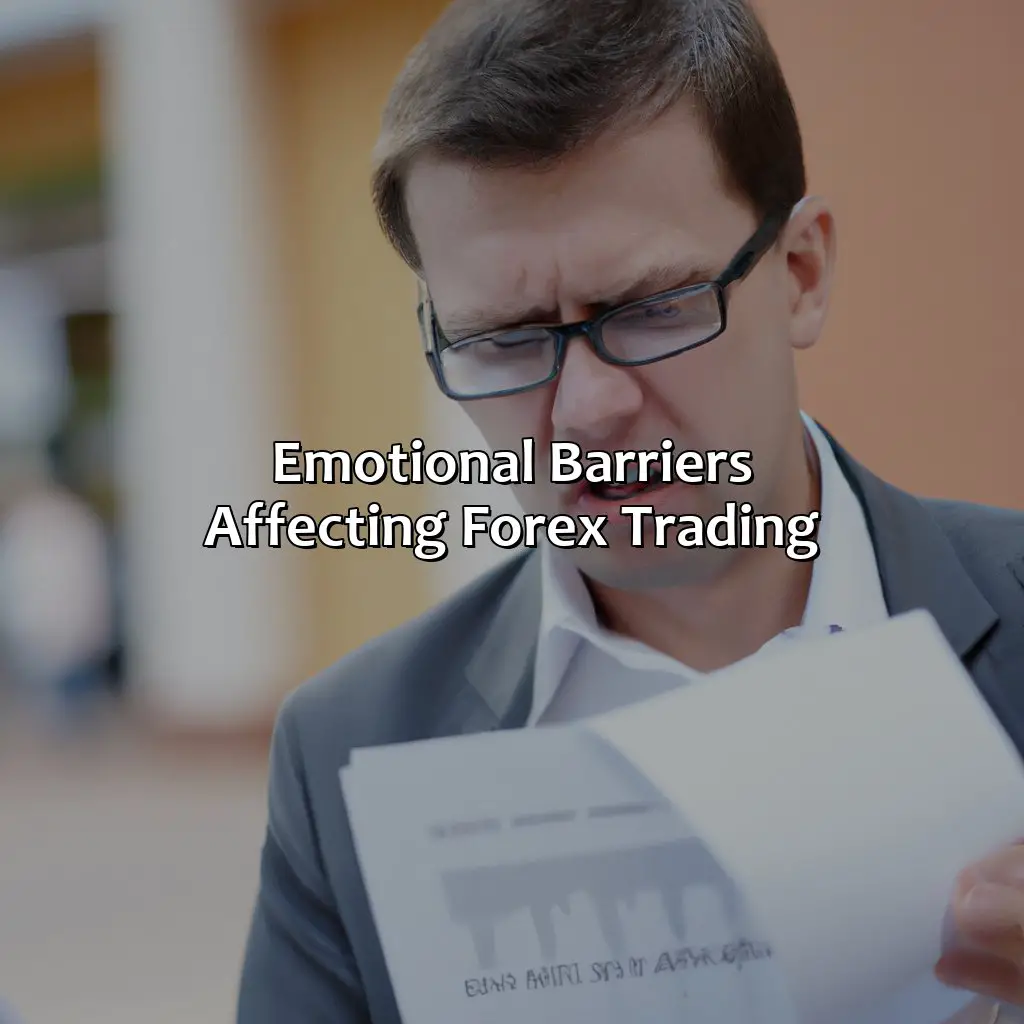
Photo Credits: forexbrokerreport.com by Terry Lewis
To keep mental health strong in forex trading, we must tackle emotional barriers with professional help. Fear, greed, overconfidence and cognitive biases can lead to too much or too little trading – destabilizing a beneficial risk-reward ratio.
A trading journal, self-awareness, and cognitive behavioral therapy can counterbalance cognitive biases. To handle psychological stress, it’s important to maintain emotional balance. This can be done with expert trading coaches, support from peers, and self-help strategies like mindfulness, visualization, and relaxation exercises.
Fear, Greed, and Overconfidence
Traders may fall prey to emotions such as fear, greed, and overconfidence in their pursuit of profits. These cognitive biases can heavily influence their decision-making ability, leading to rash decisions and losses. Overtrading or undertrading due to these biases can cause harm to the trader’s portfolio. To overcome these barriers, traders must maintain self-awareness through a trading journal and follow risk-reward ratios. Mental models, heuristics, and continuous learning can help traders overcome emotional barriers.
A true fact: According to a study by Fidelity Investments, female investors outperform male investors by 0.3% annually due to their higher levels of patience and adherence to investment plans.
Keep your emotions in check and your mindset strong for successful trading – because sometimes your biggest enemy in Forex trading is yourself.
Importance of Maintaining Emotional Balance
Maintaining emotional balance is essential to succeed in Forex trading. The psychology of trading strongly influences our decision making, which can either lead to remarkable profits or unbearable losses. Psychological support from a trading coach is vital to help us develop advanced emotional intelligence and master the art of being mindful. Developing a sound mindset that includes self-esteem, self-control, self-efficacy and self-talk plays a crucial role in achieving consistent results while trading Forex. Visualization techniques and relaxation methods like mindfulness are great ways to calm the mind when emotions take over and affect our trades.
Even the most skilled traders can’t outrun the impact of market volatility and political events on their forex trades.
External Factors Affecting Forex Trades
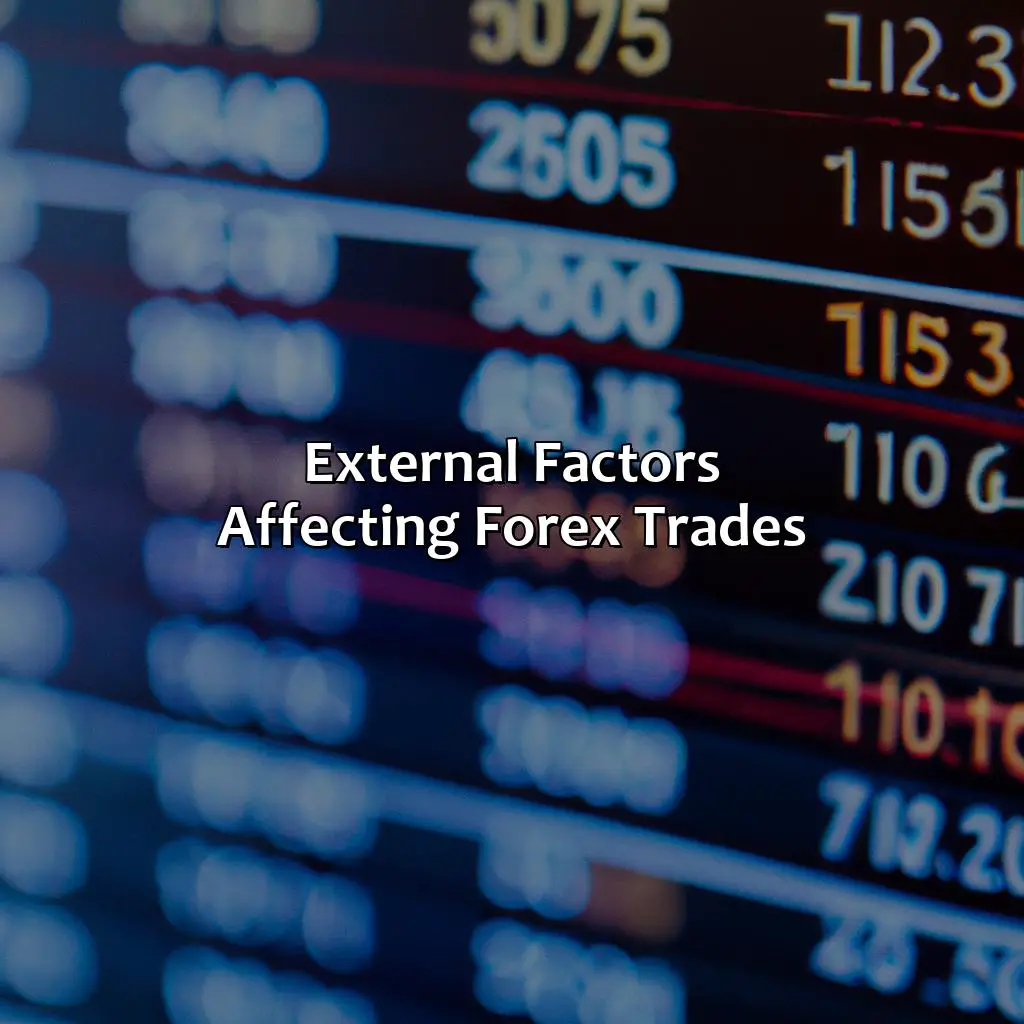
Photo Credits: forexbrokerreport.com by Harold Young
Why your forex trades can sometimes go against you? You must be aware of external factors. These include economic and political developments, market volatility and liquidity, news trading, and different types of trading e.g. scalping, swing, day or long term trading.
Let’s take a look at two major elements that can influence your trade: economic and political developments, and market volatility and liquidity.
Economic and Political Developments
Economic and political factors can considerably impact forex trades. These factors are outside the control of traders and may significantly affect the market’s value. The volatility induced by these factors can lead to margin calls and stop-losses, which can result in significant losses.
The fluctuations in forex trading triggered by economic indicators like GDP, inflation rates, trade deficits, and interest rates are an example of how economic developments influence trades.
Traders use bankroll management techniques that minimize risks associated with these factors since they cannot fully predict their impact on trades. As a result, a sound risk management strategy is critical since even successful traders must be prepared for unanticipated market events’ negative impact.
Political changes such as elections or policy declarations may also have an effect on forex markets. Thus it is critical to studying political events carefully before making decisions.
It has been widely reported that socio-political turmoil has contributed to enhanced short-term market volatility historically. When geopolitical issues or stress emerge, certain currency pairs tend to react more sensitively than others due to liquidity issues, spreads, etc.
Trading forex without considering market volatility is like trying to swim in a tsunami.
Market Volatility and Liquidity
Volatility in prices is one of the most unpredictable aspects of the forex market. Price volatility can vary significantly due to many external factors, such as economic and political developments. In contrast, liquidity refers to how much trading activity occurs in a particular currency pair. Market volatility and liquidity are both essential components that impact trading signals, order placement, and limit orders. Traders must stay informed on these changes to increase their profitability.
One crucial aspect of market volatility is that it influences overnight fees and rollover rates since they base them on interest rate differentials between the two currencies in a pair. Trading hours also play a crucial role in price variation, as this metric measures trading volume within certain days or times of day which helps dictate market liquidity.
In summary, traders should consider these aspects when trading forex pairs with higher volatilities, i.e., choosing those pairs during more liquid periods and utilizing limit orders whenever possible. Additionally, traders should supplement their trading education with analytics software that incorporates technical indicators for predicting price trends.
According to recent statistics compiled by Forex.com, over 80% of losing trades implement an inappropriate risk management strategy; be part of the minority by conducting thorough research before executing trades. Reduce your financial losses and improve your trading strategies by seeking guidance from a seasoned trading coach or mentor.
Effective Ways to Overcome Forex Trades Going Against the Trader
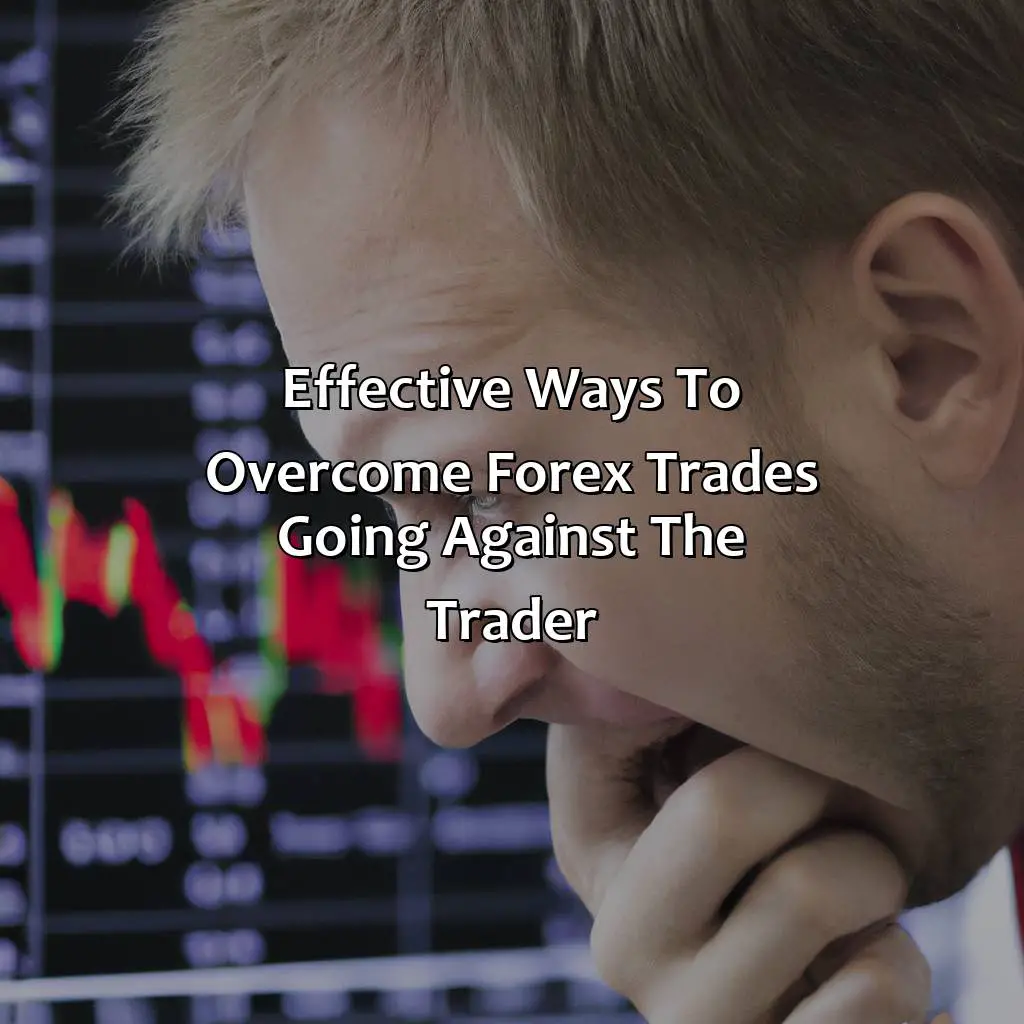
Photo Credits: forexbrokerreport.com by Brandon Anderson
If you want to beat forex trades that work against you, you must use some solutions from the following sub-sections:
-
- Learning and Continuous Improvement
The 1st sub-section is about gaining experience in the market and getting better at trading, while staying disciplined and patient.
-
- Disciplined Trading and Risk Management
In the 2nd, using risk management tools and monitoring your trades can stop financial losses.
-
- Seeking Professional Support and Guidance
Finally, the 3rd is about getting advice from experienced people. This will help improve your psychological and emotional intelligence, and also avoid any cognitive biases.
Learning and Continuous Improvement
Continuous Progress in Forex Trading
Achieving success in forex trading requires Learning and Continuous Improvement. Traders can utilize various strategies such as candlestick analysis, oscillators, moving averages, fibonacci retracements, trend following, position sizing to reduce market speculation. It’s essential to understand your risk tolerance, reward expectations and financial goals before proceeding with disciplined trading.
In addition to technical and fundamental analysis, emotional stability plays a crucial role in overcoming the adverse effects related to trade losses. Consistency is key in trading; maintaining discipline, commitment and patience while enhancing mental focus leads to better decision making.
Traders should continuously learn through experience by keeping up-to-date with the latest trends and being involved in a supportive trader community. It enables traders to have a comprehensive understanding of external events that may impact their trades positively or negatively long-term.
By acquiring practical knowledge through continuous research and commitment, traders can increase profits while reducing risks factors – eventually leading towards positive outcomes.
Trading without discipline is like driving without brakes, eventually leading to a crash – implement stop loss and profit targets to manage your risk.
Disciplined Trading and Risk Management
Managing Risks Through Disciplined Trading
Traders can execute trades by using various techniques such as stop loss, profit target, margin trading, and leverage. The key is to minimize potential risks while maximizing profits through disciplined trading and risk management. Traders must understand the concept of the risk-reward ratio and use a trading journal to analyze their wins and losses. Additionally, traders should have a consistent approach to position sizing to avoid overtrading or undertrading.
Commitment, patience, and mental focus are crucial in effective decision making when it comes to forex trading. Discipline can help eliminate cognitive biases that affect decision-making skills while keeping emotions in check. Applying sound judgment principles helps traders exercise superior control over emotions such as fear, greed, and impulsiveness.
To illustrate this point further, take the real-life example of Simon who was struggling with his forex trades going against him until he discovered the importance of discipline in trading. Simon created a robust set of rules for his trades before entering into any position based on fundamental analysis. He employed a strategy that required him to stick to predetermined stop loss and profit targets strictly. This approach helped Simon improve his win-loss ratio considerably by minimizing losses while effectively managing risks.
Seeking Professional Support and Guidance
Professional Support and Guidance in Forex Trading
Traders struggling with a losing streak must seek professional support and guidance to gain deeper insights into the trading process. A trading coach or mentor can provide psychological support, develop emotional intelligence, increase self-awareness, and help remove cognitive biases. In addition to trading strategies, traders will learn mental models and heuristics to improve decision-making.
The need for discipline, commitment, patience, and consistency is necessary for successful trading. Trading professionals also offer risk management advice, which helps traders determine an appropriate level of leverage and set stop-loss orders. Seeking professional support is a wise decision as it provides an objective view of your trades while redefining your goals.
Studies have shown that forex traders that receive coaching retain about 90% of the information presented compared to 5% only through traditional methods such as books or readings. Julius Jeyaretnam Baker (JJB) offers specialized services in all aspects of forex trading including tailor-made courses on technical analysis curriculum alongside providing world-class guidance through its industry-leading coaches.
Five Facts About Why Forex Trades Go Against You:
- ✅ Forex markets are highly volatile, making it difficult to predict future trends accurately. (Source: Investopedia)
- ✅ Emotional trading, such as fear and greed, can lead to poor decision-making and losses. (Source: FXCM)
- ✅ Lack of knowledge and experience in forex trading can result in making costly mistakes. (Source: DailyFX)
- ✅ Forex brokers may have conflicts of interest that can work against traders, such as requotes and stop-loss hunting. (Source: Investopedia)
- ✅ Forex trading requires discipline, patience, and a sound trading plan to succeed. (Source: The Balance)
FAQs about Why Does My Forex Trade Always Go Against Me?
Why does my forex trade always go against me?
There are several reasons why your forex trades might always go against you. Some of these include:
- Lack of knowledge on forex trading
- Poor risk management
- Emotional trading
- Using too much leverage
- Not following a trading plan
- Market conditions and volatility
How can I improve my forex trading success?
To improve your forex trading success, you should:
- Go through proper forex trading education
- Master the basics of risk management
- Trade with a clear mind free of emotions
- Trade with lower leverage
- Have and follow a well-defined trading plan
- Stay updated on market conditions and volatility
What forex trading strategies can I use?
Some common forex trading strategies include:
- Scalping
- Swing trading
- Position trading
- Bounce trading
- Breakout trading
- Trend following
What are the best risk management practices for forex trading?
The best risk management practices for forex trading include:
- Using stop-loss orders
- Calculating position size based on risk appetite
- Having a risk-reward ratio of at least 1:2
- Limiting the number of open trades at any given time
- Avoiding over-leveraging
- Adhering to a risk management plan
Can I make a living with forex trading?
Yes, it is possible to make a living with forex trading. However, it requires a lot of skill, dedication, and discipline. A trader needs to have a deep understanding of the markets, use sound trading strategies, and have a good risk management plan in place to succeed in forex trading.
What are the biggest mistakes that forex traders make?
The biggest mistakes that forex traders make include:
- Overtrading
- Using too much leverage
- Not having a trading plan
- Letting emotions influence trading decisions
- Chasing losses
- Ignoring fundamental and technical analysis


